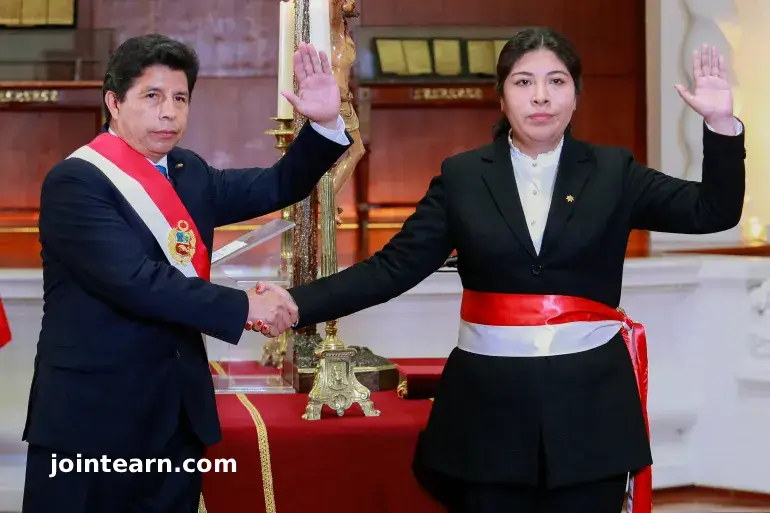
Lima, Peru — November 4, 2025
The government of Peru has cut diplomatic relations with Mexico following a political dispute involving asylum granted to former Peruvian Prime Minister Betssy Chavez. The move marks a significant escalation in tensions between the two countries, largely stemming from fallout over an alleged coup attempt by former President Pedro Castillo in late 2022.
The unexpected decision was officially announced on Monday by Peruvian Foreign Minister Hugo de Zela during a press briefing in Lima. It came shortly after reports emerged that Chavez had fled to the Mexican Embassy in Peru, where she is believed to be seeking political asylum.
Peru Condemns Mexico for Interference in Internal Affairs
In the heated announcement, Foreign Minister de Zela expressed the Peruvian government’s disapproval over what it described as “a blatant interference” by Mexico in Peru’s domestic politics.
“Today we learned with surprise and deep regret that Betssy Chavez, the alleged co-author of the coup attempt by former President Pedro Castillo, is being granted asylum at the Mexican Embassy residence in Peru,” de Zela declared. “Given this unfriendly act, and considering the repeated instances in which the current and former presidents of that country have interfered in Peru’s internal affairs, the Peruvian government has decided to sever diplomatic relations with Mexico today.”
The government of Mexico has not yet issued an official response regarding the severing of ties or the asylum request.
Who Is Betssy Chavez?
Betssy Chavez, a former Minister of Culture and later Prime Minister under President Pedro Castillo, served in Peru’s highest political circles until late 2022. She took office in November 2022 during a political standoff between Castillo and the Peruvian Congress. But just weeks later, in December 2022, Castillo was ousted and arrested after attempting to dissolve Congress and rule by decree—a move many international observers viewed as an attempted self-coup.
Chavez was charged as a co-conspirator in the alleged coup and, along with Castillo, was put on trial in March 2025. While Castillo has remained in jail since his impeachment and arrest, Chavez was released on bail in September. Prosecutors are seeking 25 years in prison for Chavez and 34 years for Castillo.
Chavez’s lawyer, Raul Noblecilla, said he had not spoken to his client “in several days” and was unaware of whether she formally applied for asylum. Her escape to Mexico’s Embassy, however, suggests fears that she may face a harsh sentence or political persecution by the current Peruvian administration.
A History of Strained Peru-Mexico Relations
The diplomatic rift between Peru and Mexico has deepened since the removal of Castillo, who had been Mexico’s political ally. On the day of his impeachment in December 2022, Castillo was en route to the Mexican Embassy in Lima to seek asylum when he was arrested on charges of rebellion and abuse of authority.
Mexico’s left-leaning president at the time, Andres Manuel Lopez Obrador, openly criticized Castillo’s arrest and offered asylum to his family. In retaliation, Peru expelled Mexico’s ambassador in 2022. Further conflicts arose when Peru’s next president, Dina Boluarte, accused Mexico of “constant interference” and recalled Peru’s ambassador from Mexico in 2023.
This latest development marks what many analysts see as the most serious diplomatic break between the two Latin American nations in decades.
Regional and Legal Implications
The decision by Peru could shake up regional diplomatic relations between Latin American countries, especially those led by left-wing governments. Analysts say the dispute may also raise broader questions about the rights of political asylum and the limits of foreign involvement in domestic legal cases.
Chavez and Castillo continue to deny all allegations. Both maintain that the impeachment and subsequent trial were politically motivated.
Meanwhile, Castillo has been in preventive custody for nearly two years, and the trial continues amidst high tension in Peru, where political divisions—especially between rural supporters of Castillo and the urban elites—remain sharp.


Leave a Reply